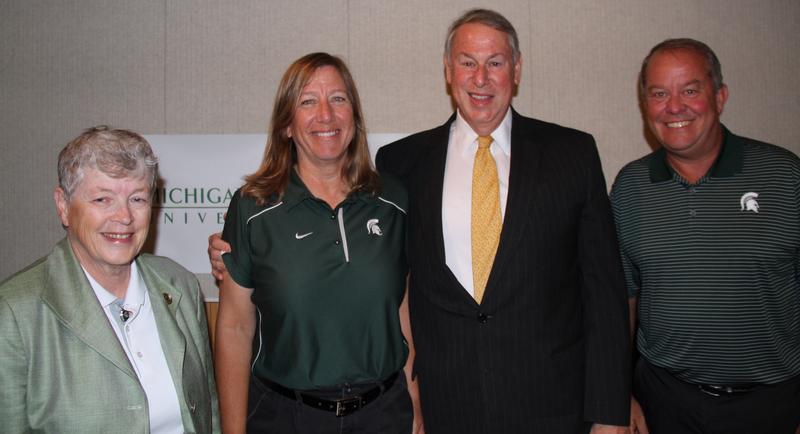
Article reposted from WKAR
Author: RUSS WHITE
“The healthcare of our athletes is very important – including their mental health,” says MSU Athletics’ lead trainer Sally Nogle. “It’s probably the best healthcare they’re ever going to have in their life because we’re readily available. They can’t stay on the field or on the court or in the pool without their health being there and allowing them to compete.”
“Does it bring balance to their life or does it make them unsettled?” adds MSU professor, researcher and neurologist Dr. David Kaufman. And he’s a team physician for Spartan Football. “The mental health aspects of sport need to be put in the forefront more and more.”
Nogle and Kaufman talk with Michigan State University President Lou Anna K. Simon and Spartans Athletic Director Mark Hollis on MSU Today. They say parents and mentors need to keep close tabs on any changes to young athletes’ physical and mental behavior and be ready to respond accordingly. If they act abnormally in anyway, they may need to be examined.
“It’s not the old days of a trainer taping an ankle,” adds Hollis. “You have a responsibility to try to understand all aspects of their health and well-being.”
And Kaufman adds that “the introduction of more science into determinations is one of the things I’ve been most pleased to observe in my six years as a team physician. And the evolution of neuroscience is one of the most exciting things in front of us.”
President Simon mentions the promising work of Marcos Dantus and Gary Blanchard on a headband that shows the “culture of innovation at MSU where we continue to try to find ways to augment our already strong system.”
Blanchard and Dantus, with MSU’s Department of Chemistry, have invented a headband that records the severity and location of impacts on the head. This inexpensive detector allows coaches, parents and doctors to quickly decide to initiate concussion protocols at sporting events, such as football or soccer.
Nogle likes the low-tech nature of the headband. She says they aren’t sensors that cost thousands of dollars. It’s a very affordable item.
“It doesn’t make the diagnosis of concussion,” adds Kaufman. “But as an extension of the clinical exam, I believe it will be valuable.
“One of the most interesting things about working at a university is that a neurologist and an athletic trainer get in a room with two chemists and something remarkable comes out as a result.”
MSU Today airs Sunday afternoons at 4:00 on AM 870.